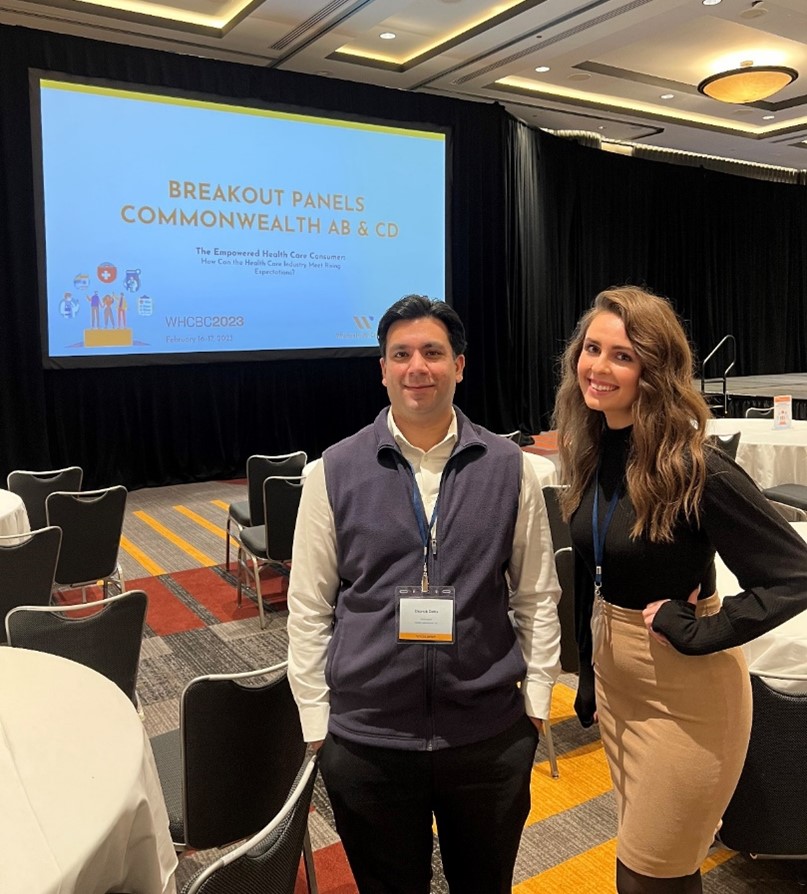
Blog | 3/7/2023
Is the Healthcare Industry Meeting the Rising Expectations of Consumers?
By Greg Chittim with Contributions from Ashley Peake and Shomik Datta
Last month, Health Advances sponsored and attended the 29th annual Wharton Health Care Business Conference, this year focused on “The Empowered Health Care Consumer.” Bringing together students, academics, healthcare providers, and industry representatives from leading medical device, digital health, and biopharmaceutical companies, the conference was a forum to understand (and in some cases to debate) the degree to which all stakeholders are meeting the needs of the consumer.
Highlights of the Conference Included the Following
- A keynote by Maulik Majmudar, co-founder and Chief Medical Officer at Biofourmis asserting that “task switching,” moving certain tasks down to caregivers that are closer to patients – like pharmacists and primary care providers – is critical to the future success of the US healthcare system. This is sometimes inversely labeled as pushing providers to work toward the top of their licensure.
- In a great segue, a keynote by Amar A. Desai, MD the Executive Vice President and President for Health Care Delivery at CVS Health supported the idea that the pharmacist’s role can be (and in CVS’ case already is) expanded to improve patient impact and access. Oftentimes patients will see their pharmacist more than any other healthcare worker. Thus, rethinking the role of the pharmacist in the patient journey could lead to better outcomes.
- On the more traditional incumbent healthcare provider side, Marketa Wills, MD, Chief Medical Officer for Johns Hopkins HealthCare described the critical role of healthcare being seen as both physical AND mental healthcare. The pandemic triggered a focus on mental health and created broader awareness of the lacking infrastructure and lack of providers. Currently, 6% of healthcare spending is on behavioral health.
- Beyond the more general needs of healthcare patient-consumers, the communities that require specialist chronic care but lack proper engagement were addressed by Misha Palecek the Chief Development Officer at DaVita. Outcomes for chronic kidney disease (CKD) would be greatly improved if stakeholders can engage patients earlier. According to DaVita, ~50% of CKD patients experience “crash” situations, where they suddenly experience major kidney failure and find out that they are in end stage renal disease (ESRD), where at least once a week dialysis treatment is required. Better engagement would catch upcoming kidney failure sooner and would improve outcomes.
- And finally speaking about the acceleration and scale of patient engagement and consumer health, Aaron Martin, a Vice President in Healthcare at Amazon noted that in 2014, digital health as we know it now wasn’t on any providers’ radar, beyond the implementation of electronic health records. The Affordable Care Act was being rolled out and Medicaid was getting expanded, and this industry was primed to get the attention of big tech and venture firms.
In the coming days, we will dive more deeply into a few of these keynotes and some of the other panels that were presented. Stay tuned!
###
Greg Chittim, Partner, Co-Leader of Health Advances’ Health IT and Digital Health practice.
Ashley Peake, Analyst and member of the metabolics and autoimmune practice at Health Advances.
Shomik Datta, Consultant and member of the oncology practice at Health Advances.

